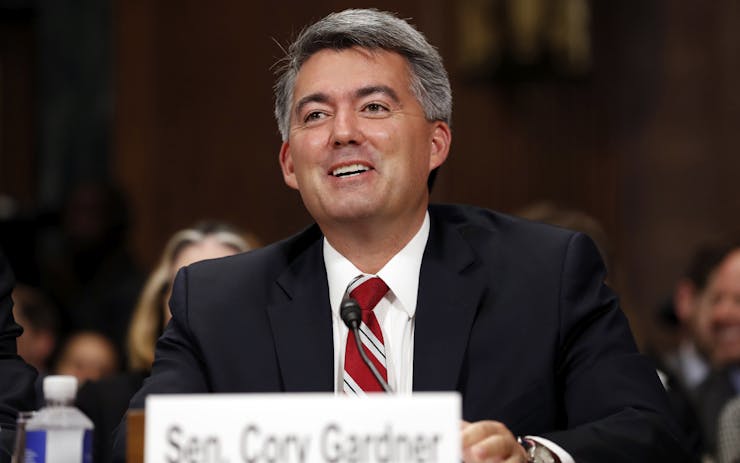Cannabis industry leaders say it’s imperative that supporters immediately contact their US senators to push for a pair of cannabis-friendly amendments to the Republican tax bill currently being debated in the nation’s capital.
The measures, sponsored by US Sen. Cory Gardner (R-Colorado), would ease tax restrictions that currently prevent state-legal cannabis businesses from making standard business deductions on their taxes. The restriction, under an IRS provision known as 280E, forces the cannabis industry to pay a far higher tax rate than other legal businesses.
One of the two amendments, SA 1609, would remove the 280E restriction entirely for cannabis businesses that comply with state laws. A similar amendment, SA 1639, includes the additional requirement that businesses be “properly regulated”—a definition that mandates licensing provisions, track-and-trace systems, limits on advertising, and other specifications.
“Cannabis businesses often pay an effective tax rate upwards of 65-75%, compared with a normal rate of around 15-30%.”
A vote on one or both of the two proposals could come as soon as Thursday evening.
The National Cannabis Industry Association, which represents the legal cannabis industry, calls 280E “an unjust burden on state-legal cannabis businesses.” It prevents taking tax deductions on business expenses, such as payroll or rent, “on any trade or business if such trade or business (or the activities which comprise such trade or business) consists of trafficking in controlled substances.”
As journalist and legalization advocate Tom Angell notes on his site Marijuana Moment, the provision was adopted in the 1980s as a way to fight organized crime:
The statute was originally intended to to stop drug cartel leaders from writing off yachts and expensive cars, but today its language means that that growers, processors and sellers of marijuana — which is still a Schedule I substance under federal law — can’t take business expense deductions that are available to operators in other sectors.
As a result, cannabis businesses often pay an effective tax rate upwards of 65-75 percent, compared with a normal rate of around 15-30 percent.
The full texts of Senate amendments 1609 and 1639 are available online. Contact information for US senators can be found on the Senate website, or you can call the US Capitol Switchboard at 202-224-3121 and request to be connected to a specific Senate office.





